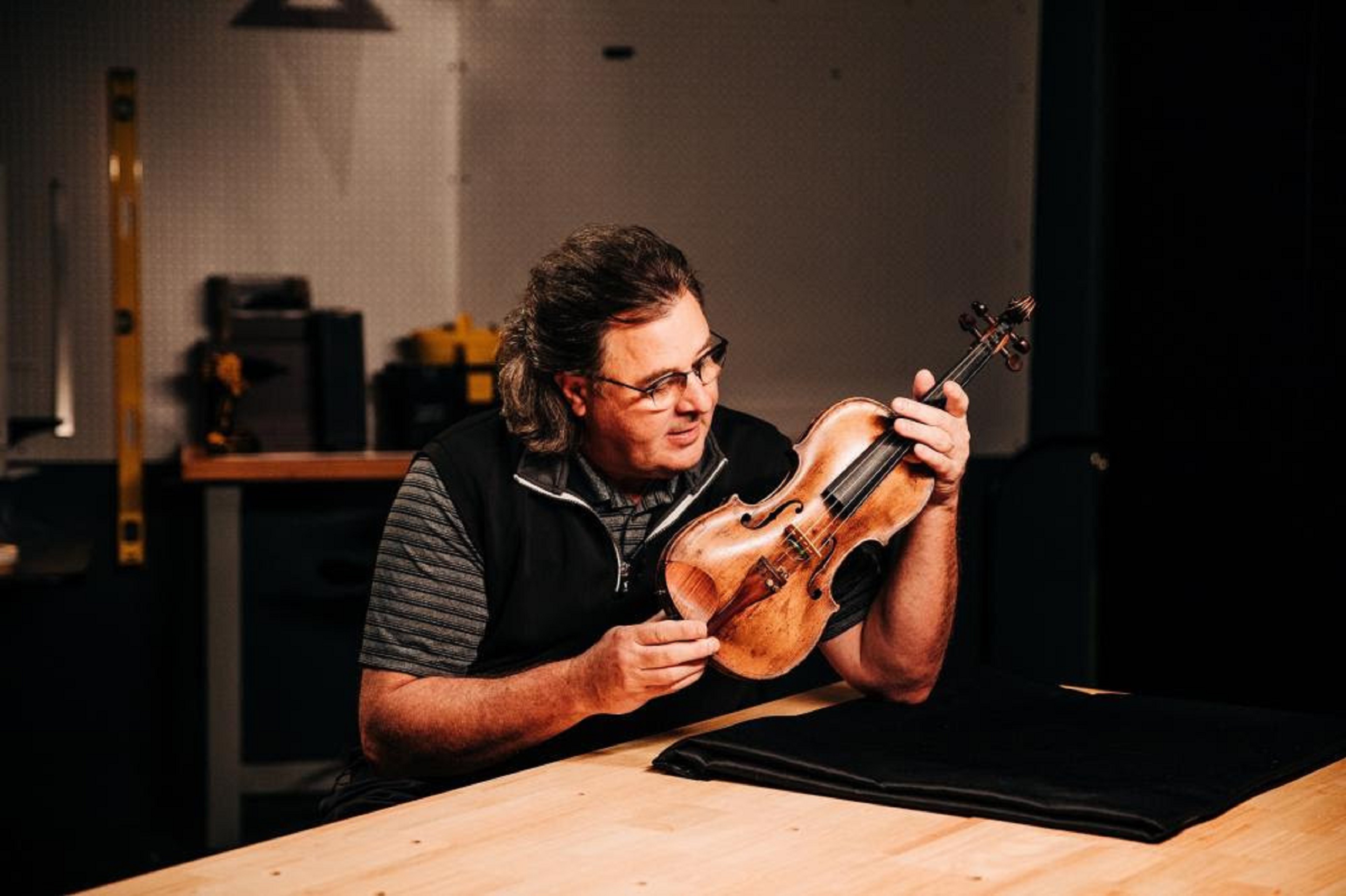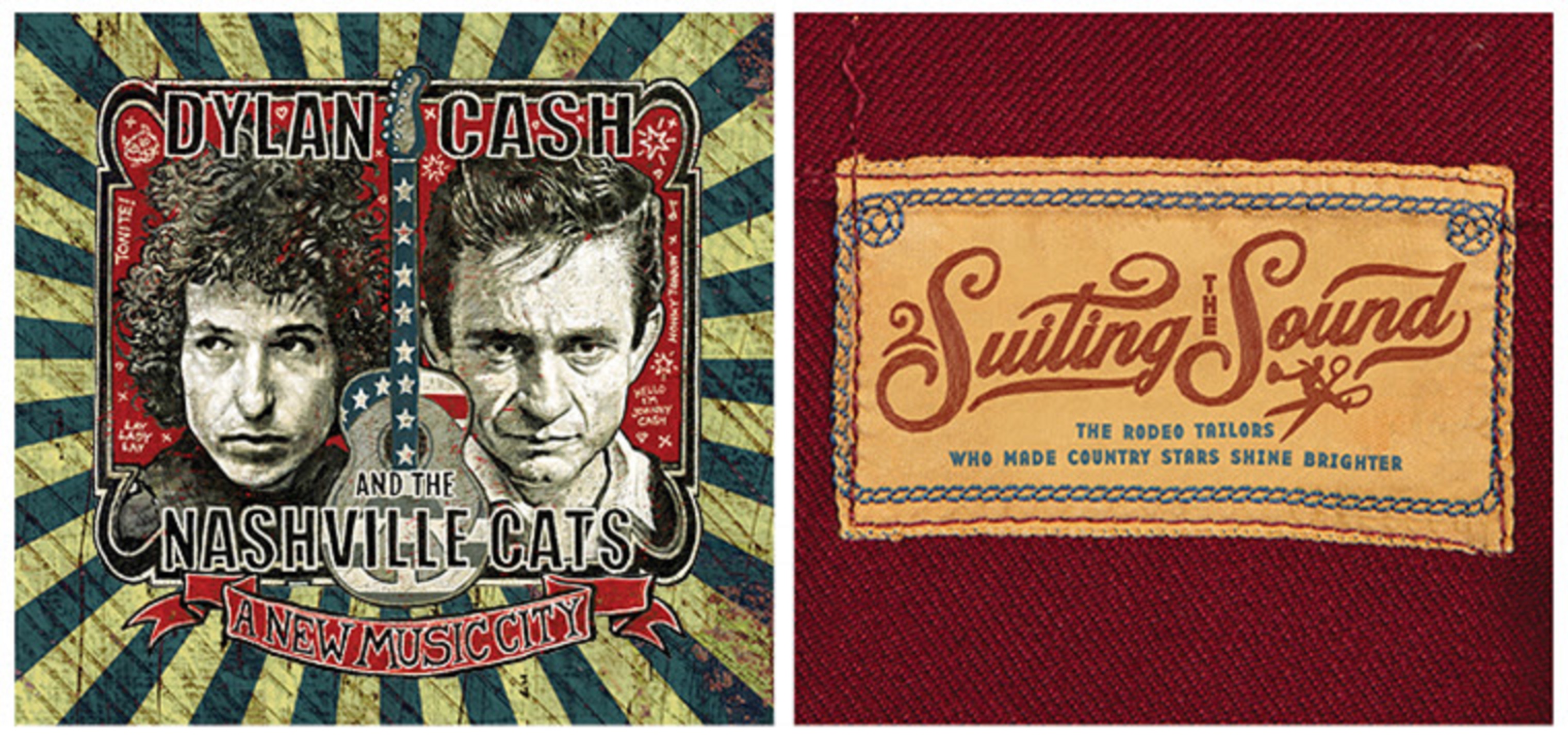Today, the Country Music Hall of Fame® and Museum announced that Country Music Hall of Fame member Roy Acuff’s cherished fiddle has been added to the museum’s permanent collection. On view to the public today—just in time to celebrate our nation’s independence—Acuff’s fiddle debuts in a spotlight exhibit in the museum’s upper-level galleries.
The fiddle, which was found and given to Acuff by American soldiers stationed in Germany at the end of World War II, was donated to the museum by Vince Gill. Gill is a member of the Country Music Hall of Fame and the president of the Country Music Hall of Fame and Museum’s Board of Officers and Trustees.
The instrument and its story exemplify the popularity of country music—and Acuff in particular—during the Second World War. Then a major star of the Grand Ole Opry and a best-selling Columbia recording artist, Acuff enjoyed broad appeal in country music at the time, serving as an important bridge from the stringband era to the modern era of star singers backed by bands.
“Roy Acuff’s prized fiddle is an important instrument with a remarkable story,” said Country Music Hall of Fame and Museum CEO Kyle Young. “Because of Vince Gill’s generosity, the museum is now the permanent steward of an instrument that illustrates Roy Acuff’s cultural significance and the growth of country music during a period of great expansion for the genre. This instrument will be used to educate generations of fans and scholars about the music and career of Acuff, who served as an ambassador for country music as the face of the Grand Ole Opry and a regular USO performer, among many other accomplishments."
The fiddle was acquired this year by Vince Gill, who became friends with Acuff when Gill began appearing on the Opry in the late 1980s. Gill’s affection and respect for Acuff moved him to donate the fiddle to the museum to add to its permanent collection.
“It felt important to me that the great Roy Acuff’s fiddle join the ranks of other revered instruments in the museum’s permanent collection—including Maybelle Carter’s 1928 Gibson L-5 guitar and Bill Monroe’s 1923 Gibson F-5 mandolin,” said Gill. “The fiddle was given to Acuff by soldiers during a time of war because of how much he meant to them. He meant a lot to me, too.”
The instrument was built in Germany around 1890 and is a copy of the highly prized violins constructed by Austrian luthier Jacobus Stainer in the 1600s. Discovered in a bombed-out music store in Frankfurt, Germany, by soldiers from the U.S. Army’s 348th Engineer Combat Battalion in the waning days of World War II, the fiddle was sent to Acuff, their favorite country music performer, as a show of appreciation. Liking the tone, Acuff made it his primary fiddle for many years.
Acuff (1903-1992) was a singer, fiddle player, bandleader, songwriter, music executive and Grand Ole Opry favorite. He became famous as the host and headlining star of the “Prince Albert Show,” the NBC radio network segment of the Grand Ole Opry that began airing in 1939, and he remained the face of the Grand Ole Opry until his death. Acuff’s star power among U.S. servicemen and women was proven when he prevailed over pop crooner Frank Sinatra in a popularity contest held on Armed Forces Network’s “Munich Morning Report” near the end of World War II.
Acuff’s remarkable contributions to country music, which included co-founding Nashville’s Acuff-Rose Publications in 1942, led to him becoming the first living member of the Country Music Hall of Fame in 1962. Items displayed with the fiddle include correspondence from 1969 between Acuff and John E. Johnson Sr.—one of the four servicemen who sent him the fiddle—and a letter signed by Acuff verifying this is the fiddle he personally carried and played on stages around the world and at the Grand Ole Opry.
In addition to the exhibition, the museum produced a brief video sharing the story of the fiddle and how it came into the museum’s permanent collection. The video includes interviews with Vince Gill and museum staff, along with related archival materials. Visitors to the exhibit may use a smart device to scan a QR code, which will take them to the film. The video is also available on the museum’s website here for all to enjoy.
More information about this exhibit can be found at www.CountryMusicHallofFame.org








